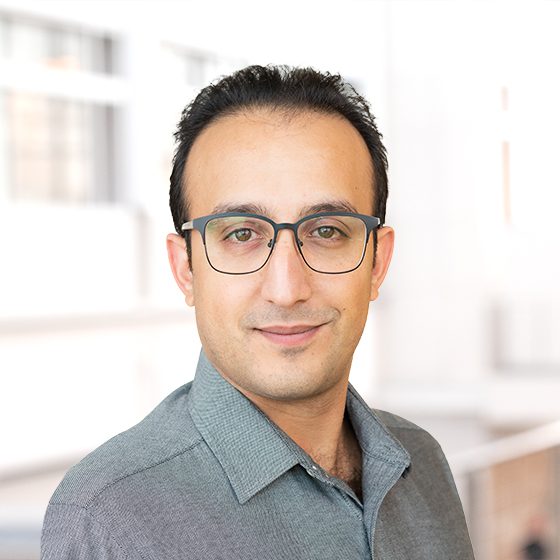
- Graduate Field Affiliations
- Applied Physics
- Physics
Biography
Valla earned his Ph.D. in Physics in 2018 from the Massachusetts Institute of Technology where he researched quantum transport in atomically layered materials. He then moved to Yale University as a postdoctoral associate to apply circuit quantum electrodynamics probes to hybrid superconducting devices. In 2022, he joined the School of Applied and Engineering Physics at Cornell as an assistant professor to establish a lab that brings together the physics of quantum materials and the techniques of superconducting microwave quantum circuits.
Research Interests
The Fatemi Lab cross-pollinates quantum materials and quantum coherent devices to develop new scientific insights and proof-of-principle quantum information technologies. General subject areas include superconducting materials and devices, topologically nontrivial systems, and unconventional phenomena in low-dimensional electronic matter. The materials platforms we will begin with include 2d materials, van der Waals heterostructures, and superconductor-semiconductor heterostructures. Three topics of interest that synthesize the above subject areas and materials platforms are described below:
Andreev Bound States and Qubits
Andreev states, the discrete fermionic modes that exist at junctions between superconductors, occupy a unique space at the intersection of basic and applied physics. This is because their supercurrent-carrying nature makes them naturally compatible with superconducting quantum technologies, including circuit quantum electrodynamics. The Fatemi Lab will apply these new technologies as novel probes, such as for microwave susceptibility and spectroscopy, to pursue both fundamental discoveries and the development of novel quantum coherent devices, including qubits. Furthermore, the lab will explore new materials platforms in the search for better foundations for conceptually standard electrodynamical qubits.
Natural and Engineered Topolgical Devices
Concepts from geometric topology have revolutionized our understanding of materials and quantum states. These led to ideas in which the topology of a wave-function may result in protected states that robustly preserve quantum information. We are interested in developing new experiments to show that these kinds of quantum wavefunctions can be constructed, whether in a natural material or in an engineered system, and to evaluate their performance in realistic environments.
Sensing Quantum Materials
Exotic quantum phases of electrons in materials are often fragile, only appearing at the lowest temperatures and in the cleanest samples. Consequently, experimental probes or processes are liable to perturb or damage the materials in ways that disrupt the correlated electronic phases. We will adapt new experimental tools inspired by the circuit quantum electrodynamics architecture, which was developed to read and manipulate quantum states without disturbing their coherence, to detect and learn about the most delicate quantum phases of electronic matter.
- Nanotechnology
- Quantum Information Science
- Condensed Matter and Material Physics
Select Publications
-
M. Hays, V. Fatemi, D. Bouman, J. Cerrillo, S. Diamond, K. Serniak, T. Connolly, P. Krogstrup, J. Nygård, A. Levy-Yeyati, A. Geresdi, M. H. Devoret. “Coherent manipulation of an Andreev spin qubit.” Science, 373, 430-433 (2021)
-
V. Fatemi, A. Akhmerov, L. Bretheau. “Weyl Josephson circuits.” Phys. Rev. Research, 3, 013288 (2021)
-
M. Hays, V. Fatemi, K. Serniak, D. Bouman, S. Diamond, G. de Lange, P. Krogstrup, J. Nygård, A. Geresdi, M. H. Devoret. “Continuous monitoring of a trapped, superconducting spin.” Nature Physics, 16, 1103-1107 (2020)
-
V. Fatemi, S. Wu, Y. Cao, L. Bretheau, Q. D. Gibson, K. Watanabe, T. Taniguchi, R. J. Cava, P. Jarillo-Herrero. “Electrically tunable low-density superconductivity in a monolayer topological insulator.” Science, 362, 6417, pp. 926-929 (2018)
-
Y. Cao, V. Fatemi, S. Fang, K. Watanabe, T. Taniguchi, E. Kaxiras, P. Jarillo-Herrero. “Unconventional superconductivity in magic-angle graphene superlattices.” Nature, 556, 7699, pp. 43-50 (2018)